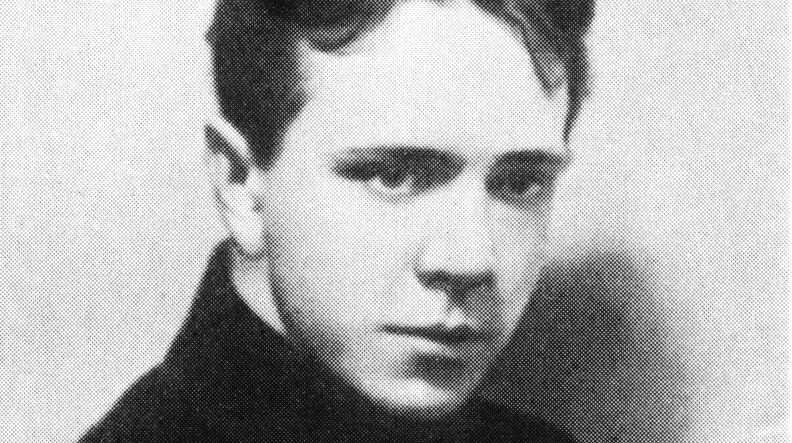20 Facts About Michael Chekhov
Fascinating Insights into the Innovative Actor and Teacher
(By Carmichael Phillips)

(Michael Chekhov)
Michael Chekhov, renowned for his pioneering contributions to acting theory and his innovative approach to the craft, left an indelible mark on the world of theater and film. A student of Stanislavski and nephew of playwright Anton Chekhov, Michael Chekhov’s unique blend of psychological insight and artistic experimentation revolutionized acting techniques. Here are 20 intriguing facts about the life, work, and legacy of this influential figure:
- Early Influences: Born in 1891 in Saint Petersburg, Russia, Michael Chekhov grew up surrounded by the cultural and artistic influences of his uncle, Anton Chekhov, and his involvement in the Moscow Art Theatre.
- Stanislavski Connection: Chekhov studied under Konstantin Stanislavski, the father of modern acting techniques, and became an integral part of the Moscow Art Theatre.
- Psychological Gesture: One of Chekhov’s most notable contributions to acting is the concept of the “psychological gesture,” a physical movement that encapsulates a character’s inner state.
- Radiant Child: Chekhov often referred to actors as “radiant children” who possess boundless imagination and the ability to tap into the universal human experience.
- Hollywood Influence: After emigrating to the United States in the 1930s, Chekhov brought his teachings to Hollywood, where his innovative approach resonated with actors seeking new tools.
- Biomechanics Collaboration: Chekhov worked alongside Vsevolod Meyerhold, another influential theater practitioner, to combine elements of psychological realism and physicality.
- The Chekhov Theatre School: In 1929, Chekhov established the Chekhov Theatre School in Dartington Hall, England, where he refined his teaching methods and trained actors from around the world.
- International Workshops: Throughout his career, Chekhov conducted workshops and taught his techniques in various countries, including Germany, France, and the United States.
- Psychological Gesture Exercises: Chekhov’s exercises included utilizing the psychological gesture to access emotional states, encouraging actors to embody a character’s internal dynamics.
- Physical Character Transformation: Chekhov emphasized the transformative power of physicality to create unique characters, encouraging actors to explore movement and body language.
- Mentorship of Ingrid Bergman: Actress Ingrid Bergman sought Chekhov’s guidance, and he had a profound influence on her performances, particularly in her role in “Joan of Arc” (1948).
- Authorship: Chekhov penned several books, including “To the Actor” and “On the Technique of Acting,” which continue to be revered resources for actors and educators.
- Collaboration with Stanislavski: Despite differences in their approaches, Chekhov maintained a respectful relationship with Stanislavski and appreciated the contributions of the Stanislavski System.
- Subtext Exploration: Chekhov’s technique encouraged actors to explore the subtext of a scene and delve into the unspoken motivations of their characters.
- Film and Theatre Legacy: Chekhov’s influence extended to both film and theatre, with actors like Jack Nicholson and Marilyn Monroe benefiting from his teachings.
- Incorporation of Imagination: Central to Chekhov’s method was the imaginative exploration of characters, allowing actors to access emotions and intentions through creative visualization.
- Experimental Theatre: Chekhov’s willingness to experiment with movement, voice, and emotion paved the way for more experimental forms of theater.
- Evolution of His Technique: Over time, Chekhov’s technique evolved, incorporating elements of his own spiritual beliefs and metaphysical concepts.
- Influence on Anne Bogart: Contemporary theater director Anne Bogart cites Michael Chekhov as a significant influence on her work, particularly his focus on the ensemble.
- Lasting Legacy: Michael Chekhov’s impact on acting endures through his students, writings, and the actors and directors who continue to explore and adapt his innovative techniques.
Michael Chekhov’s legacy resonates in the hearts of actors and theater practitioners worldwide. His imaginative approach to acting, commitment to emotional authenticity, and integration of movement and psychology have left an indelible mark on the art of performance. As the acting world continues to evolve, his teachings remain a source of inspiration and innovation, inviting new generations of actors to embrace their inner radiant children and explore the depths of human expression.



